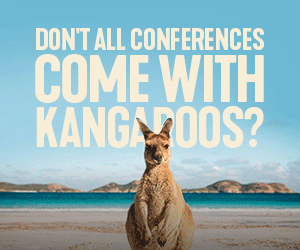Conversation on Psychology, Marketing and Diversity: the Exhibition Marketers Masterclass

The marketing and PR agency for the events industry 52eight3 hosted its one-day Exhibition Marketer's masterclass on October the 15th. Designed to provide a greater depth of commercial awareness for marketers, it provided essential practical sessions to enable exhibition marketers to deliver better audiences to their competitive events calendar.
“We believe this time can be used as an opportunity to press reset in our traditional approach and inject fresh ideas, inspiration and methods into the industry,” said Katie Morhen, founder and director of 52eight3. "We want event marketing professionals to return to their roles with a bang!"
HQ attended the event and these are some of our favourite discussions.
Tim Manning, the executive producer of Jack Morton Worldwide and lecturer at Isituto Marangoni, went through the depth of human mind in a presentation called ‘Understanding and communicating with your audience psychology in post-lockdown world’. “Have we ever been so vulnerable?” Manning asked the attendees. “And yet we have hope, we are driven, we are lean forward by optimism, we crave solutions, we reinvent ourselves, we reinvent our businesses and we ask many questions.” But the truth is, he said, “our industry has always been in a panic, even before the pandemic”. “Our industry was in a crisis because the Internet was about to smash into live events and bring digital into the real world.” This is when psychology comes to help us, with Manning’s tips for instance: make your opening value-centric, don’t be weak with your headlines, look at reviews, get to know your clients personally, find your tribe, become global and hyperlocal at the same time. “Let’s try to make things more meaningful, let’s apply something called ‘slow thinking’.” The lesson here is: what used to work 40 years ago does not work anymore. A system that requests more energy, but can be more helpful, is the only way now.

Another greatly delivered presentation was the one by Sophie Holt. As the global strategy director of Explori, she exposed the State of the Nation Report. Holt showed the data obtained by analysing three important issues: how has the absence of live events impacted customers? What does the future hold for virtual and hybrid? What could you do better for customers? “Interestingly, while respondents still do prefer live, they are actually warming to virtual events and are starting to reassess and maybe starting to see how they could generate leads through virtual events,” Holt said. “So it definitely says that, whilst there’s still some gaps in the experience that we need to close, actually when exhibitors are getting a grip on virtual events, we see them fulfill more effectively.” For Explori, a tipping point in the industry is visible, with a lot of early movers making their first (not always perfect) steps. “They seem to see the potential here, but we just need to optimise the experience.” In summary: virtual events will be around for a long time to come, they have the potential to enhance and attract new audiences, but need real feedback to do so (given that data can help optimise the results).

Finally, Morhen’s conversation with Ashanti Bentil-Dhue, practitioner and speaker helping the global events industry around the topics of diversity, equity and inclusion, was just a revelation and felt like a much needed breath of fresh air. It was all about the making of diversity allies, inclusive audiences and - in the end - events really valuable for all. The good news is that there are ways to avoid an all ‘white old men’ panel, which will only end up speaking to a minority (though the powerful one) of the global population.“Where is everybody else? How do we break stereotypes and welcome everybody?” asked Morhen. One way is giving the right importance to language: it has to make everybody comfortable and it has to allow every voice to be heard. Another is bringing diverse speakers and contributors from different departments and different levels of seniority. “It’s about thinking of the community you serve,” said Bentil-Dhue. “Certainly you serve a diverse community, so how can you find practical ways to include their presence in the event that you are running?” It is a combination of individual work and cultural sensitivity training. “Because there’s a fine line between cultural appreciation and cultural appropriation. I know it can be really challenging for marketers, so it’s always better to do a little bit of research [...] but you don’t want to be condescending or patronising.” Try to be protective and practically useful for everybody. “Ultimately, good communities are built on the bases of trust.”

Other Articles
About Us
Supported by the Union of International Associations (UIA), the International Association of Professional Congress Organisers (IAPCO) and the Interel Group, the global public affairs and association management consultancy, Headquarters Magazines serve the needs of international associations organising worldwide congresses.















